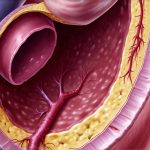Cancer is a complex disease with multifaceted origins, rarely attributable to a single cause. While genetics and lifestyle factors like smoking and physical inactivity are well-recognized contributors, the role of diet – specifically processed foods – in increasing cancer risk is gaining significant attention. Modern diets increasingly rely on convenience and readily available processed options, raising concerns about their long-term impact on health. Understanding how these foods potentially contribute to cancer development requires a nuanced examination of their composition, manufacturing processes, and subsequent effects on the body’s cellular mechanisms.
The prevalence of processed foods isn’t simply a matter of personal choice; it’s interwoven with economic pressures, marketing strategies, and shifting cultural norms. Foods are often heavily processed to extend shelf life, enhance palatability, or reduce production costs. This processing frequently involves altering the original nutritional value, stripping away beneficial compounds, and introducing potentially harmful additives. While not all processed foods are inherently detrimental – minimally processed options like frozen vegetables can be part of a healthy diet – it’s the ultra-processed variety that presents the most significant concerns regarding cancer risk, due to their often complex ingredient lists and deviation from whole food sources.
The Impact of Processing on Nutritional Value & Cancer Development
Processing fundamentally alters the nutritional landscape of foods. Whole, unprocessed foods are brimming with vitamins, minerals, fiber, and phytonutrients – naturally occurring compounds that provide health benefits, including anti-cancer properties. When foods undergo processing, many of these vital nutrients are lost or significantly reduced. For example, refining grains removes essential B vitamins and fiber, while extensive cooking can degrade vitamin C content. This loss leaves the body deficient in crucial protective elements, weakening its natural defenses against cellular damage that can lead to cancer. A diet consistently lacking in these micronutrients compromises immune function and hinders the body’s ability to repair damaged cells effectively.
Beyond nutrient depletion, processing often introduces substances with potentially harmful effects. Artificial sweeteners, for instance, while marketed as healthier alternatives to sugar, have been linked – in some studies – to altered gut microbiome composition, inflammation, and even increased risk of certain cancers. Similarly, artificial colors and flavors are added primarily to enhance appeal but lack nutritional value and may contain chemicals that raise health concerns. The cumulative effect of these alterations is a food environment that prioritizes taste and convenience over optimal health, potentially increasing cancer susceptibility. It’s not merely what we lose in processing, but also what we gain – often substances that actively undermine our health.
Furthermore, the very nature of ultra-processed foods encourages overconsumption. They are engineered to be hyper-palatable – intensely satisfying and rewarding to the brain – leading individuals to eat larger quantities than needed, contributing to weight gain and obesity. Obesity is a well-established risk factor for numerous cancers, including breast, colon, kidney, and endometrial cancer, creating a direct link between processed food consumption and cancer incidence.
Additives & Preservatives: A Closer Look
The sheer number of additives and preservatives found in ultra-processed foods is staggering. These substances are used to extend shelf life, maintain texture, enhance flavor, or improve appearance. While regulatory bodies deem many of these additions “safe” within certain limits, the long-term effects of chronic exposure to low levels of multiple chemicals remain a subject of ongoing research and debate. Nitrates and nitrites, commonly found in processed meats like bacon and hot dogs, are used as preservatives but can convert into carcinogenic nitrosamines during digestion. These compounds have been strongly linked to increased risk of colorectal cancer.
- Sodium benzoate, a common preservative in soft drinks and pickles, has also raised concerns due to potential formation of benzene, a known carcinogen, under certain conditions.
- Artificial food dyes, despite being permitted for use, have been associated with hyperactivity in children and, in some studies, increased risk of allergic reactions and even cancer development.
The challenge lies not just in the individual additives themselves, but also in their synergistic effects – how they interact with each other within the complex matrix of a processed food product. These interactions can amplify harmful effects or create unexpected consequences that are difficult to predict through isolated testing. Understanding the cumulative impact of these chemical cocktails is critical.
The Role of Advanced Glycation End Products (AGEs)
Advanced Glycation End Products (AGEs) are compounds formed when sugars combine with proteins or fats, a process accelerated by high-heat cooking methods commonly used in food processing and preparation. Processed foods often contain higher levels of AGEs due to their manufacturing processes – frying, grilling, roasting – and ingredients like refined sugars and oils. While the body naturally produces some AGEs, excessive intake through diet can overwhelm its ability to clear them effectively.
AGEs contribute to chronic inflammation, a key driver of cancer development. They damage cells, disrupt cellular signaling pathways, and promote oxidative stress, creating an environment conducive to tumor growth. Furthermore, AGEs impair immune function, reducing the body’s ability to identify and destroy cancerous cells. Foods particularly high in AGEs include processed meats, fried foods, baked goods made with refined sugars, and commercially prepared snacks.
Gut Microbiome Disruption & Cancer Risk
The gut microbiome – the vast community of microorganisms residing in our digestive tract – plays a pivotal role in overall health, including cancer prevention. A healthy gut microbiome supports immune function, aids digestion, and produces beneficial compounds that protect against disease. However, ultra-processed foods can significantly disrupt this delicate ecosystem. The lack of fiber in these foods starves beneficial bacteria, while the abundance of sugars and artificial sweeteners promotes the growth of harmful bacteria.
This imbalance, known as dysbiosis, weakens the gut barrier, allowing toxins and inflammatory substances to leak into the bloodstream – a condition called “leaky gut.” Chronic inflammation is then triggered, increasing cancer risk. Moreover, dysbiosis can alter the production of metabolites that influence cancer cell growth and proliferation. Restoring gut health through dietary changes—emphasizing whole foods and fiber-rich options—is essential for mitigating these risks.
It’s important to emphasize that reducing processed food intake isn’t about eliminating all convenience or indulging in restrictive diets. It’s about making informed choices, prioritizing whole foods whenever possible, and becoming more aware of the ingredients lists on packaged products. A balanced diet rich in fruits, vegetables, whole grains, and lean proteins provides the nutrients needed to support cellular health and strengthen the body’s natural defenses against cancer. Focusing on cooking at home using fresh ingredients allows for greater control over what we consume and minimizes exposure to potentially harmful additives. Ultimately, a proactive approach to dietary choices can significantly impact long-term health and well-being.


















